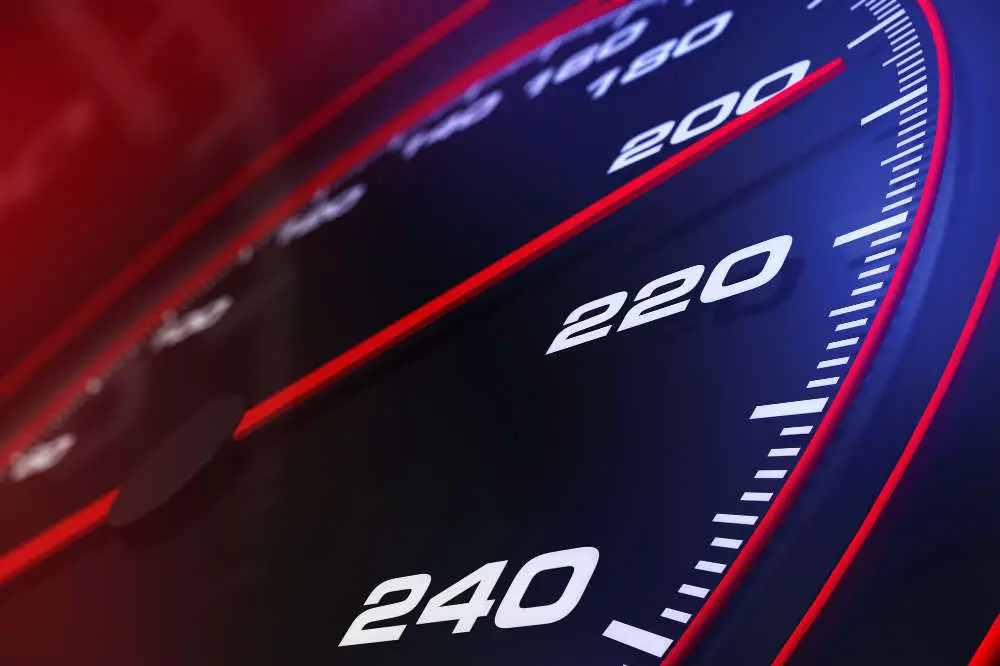Everyone has heard the famous engine roar when a high-powered car starts up or accelerates to high speeds. But, unfortunately, this isn’t the only noise your car may produce.
That may be the only sound you want to hear, but…
Any additional sound should draw your attention when you step on the gas pedal.
For example, it might indicate that something is wrong underneath the hood. So, which sounds should you pay attention to?
In this article, find out what can be the problem, and what can you do about it.
Advertising links are marked with *. We receive a small commission on sales, nothing changes for you.
What Can Be The Cause Of The Noise In General?

When strange noises begin to appear when you put your foot onto the pedal, you may be curious as to what is causing them.
Knowing what is triggering them makes the issue much more understandable.
That way, you can get your automobile fixed and back on the road as soon as possible!
The suspension system in your car is designed to reduce the grip between the tires and the ground.
Of course, while providing a smooth ride for you and your passengers.
Many of the components that generate clunking or banging sounds are not only part of the suspension, but also aid in vehicle steering control.
Any problems with the vehicle’s steering or suspension should be checked out by a professional since they will only get worse with time.
First Cause: Malfunctioning Ball Joints
Ball joints connect things to the rest of the suspension system.
More precisely, it combines the vehicle’s wheel hubs. Ball joints can be load-bearing, depending on the car.
You may hear rattling sounds coming from the front wheels if a ball joint fails.
Over time, the clunking sounds will get louder and more frequent.
There is also a possibility that a faulty ball joint will affect your steering, possibly adding vibrations to your steering.
Second Cause: Sway Bar
The sway bar, also known as an anti-roll bar, on a vehicle assists to reduce body roll while handling.
Sway bars can help prevent a vehicle from rolling over when heading around a steep bend.
If the anti-roll bar breaks or is damaged, you’ll hear a clunking or pounding, especially while driving over bumps.
Your automobile may also have greater difficulties handling if the anti-roll bar is broken.
Third Cause: Poor Tie Rods
Tie rods link the steering rack to the steering arm of a vehicle. This aids in the translation of steering wheel rotation to tire direction.
You can hear a ticking noise when a tie rod end is worn or loose.
Worn tie rod ends might also increase steering wheel play, making turning harder.
What Can Be The Cause Behind The Noise While Accelerating?
There are several causes. Here are some of them.
A Valve Train That Is Stuck
A noticeable clicking sound is frequently heard when one of the hydraulic jacks in your valve train is blocked or out of rhythm.
This is usually due to varnish accumulation, although it can also be insufficient oil pressure.
Most of the time, simply adding a particular addition to the oil will cure the problem. However, a replacement may be required.
Timing Chain That Is Loose
If you hear a rattling sound when accelerating, it’s time to schedule an appointment with the authorized dealership’s service center.
Certified techs have the proper equipment to see if you need a chain replacement or something more in-depth.
Unfortunately, when the timing chain gets too old, it loses its tension and sounds like it’s clunking/rattling.
Drive Belt That Is Loose
Under the hood, a chirping or high-pitched screeching noise might indicate that your drive belt is weak and aged out.
It’s simple to silence this noise by having a mechanic replace your belt.
This will improve the performance of your car and give you a quieter ride.
Overheating Problems
An overheated engine may lead to significant problems in your car, including a fire beneath the hood.
Make sure to keep an eye on your dashboard’s temperature readings.
Get off to the roadside where appropriate and switch off your motor if it is too hot.
What Happens If You Take It To The Mechanic?
In addition to the clunking or banging noise, telling a technician about any unexpected feelings can assist them in figuring out what went wrong with the car.
To inspect for play, the mechanic will lift the front of the car off the floor and shake the front tires.
The technician will suspect faulty ball joints if the front tires are worn out.
The mechanic will also remove the wheels and control arm(s) to reach the defective ball joint.
The old ball joint will then be removed and replaced with a new one. The mechanic should make sure the replacement ball joint is well lubricated to promote longer life.
If the mechanic feels the sway bar has failed, they will first check the sway bar bearings.
If the complete sway bar looks to be in good condition, the clunking sounds might be caused by the bushing.
If required, the mechanic will repair the bushings and sway bar.
If the technician doubts the tie rods, he will inspect them for damage.
Then, the technician will remove the worn or loose tie rod end and replace one if necessary.
After installation, the mechanic will also check that the replacement tie rod end is correctly greased.
If nothing is the problem of the above, he will proceed with the rest of the things that could be the cause of the noise.
Conclusion
Although we wish none of these sounds become a regular occurrence for your vehicle, we’ve compiled a list of the most typical noises that prompt drivers to visit our repair facility.
Clicking, roaring, pounding, and screeching are some of the sounds that should indicate a problem.
Drive safe and contact the dealership center if you hear any sounds!

Luna Meschiari is a full-blooded car nut who is well known to local garages, as each article is meticulously researched and peppered with the latest piece of information. Guess what car she’s driving right now? A RAV4 2021 Hybrid. But her heart also sleeps for pickups like the F-150. Get to know Luna better on the about us page.
Advertising links are marked with *. We receive a small commission on sales, nothing changes for you.
